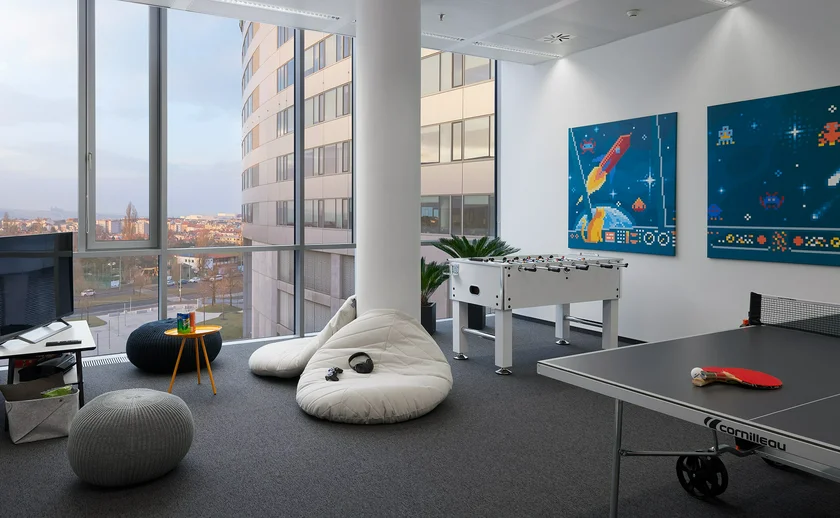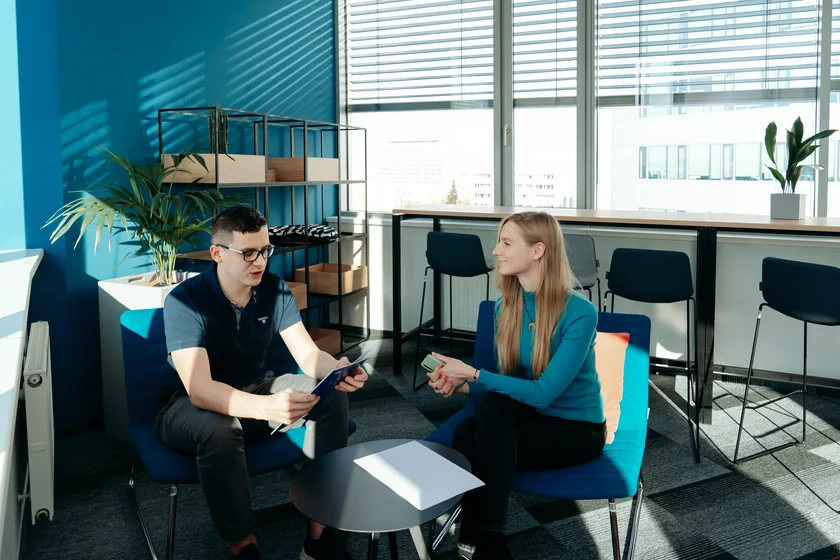Even at the best of times, relocating abroad is no small feat. Doing so during a worldwide pandemic can create an added layer of anxiety and uncertainty. But when it's done right, joining a community of professionals overseas can be a rewarding experience.
We spoke with Semrush Mobility Manager Maria Shkaruppa about the challenges of relocation in 2021, why you shouldn't be afraid to move during these difficult days, and, above all, what makes the Czech capital a great place to work and live.
Your position is clearly a crucial one for a company that relocates 90 percent of its employees. When was this role created and how has the company grown since then?
The Mobility Manager role, which doesn't just focus on paperwork but the bigger picture of coordinating an entire employee relocation, was created in 2019. The need emerged when our HR generalists could not support the coordination of employees and candidates because we had quite a large number of relocations flowing into our company in Prague. Since I joined the company, the Prague office has grown exponentially. We have around 90 employees now.
What sort of expertise do you bring to the role personally?
I worked in immigration previously so I have a lot of experience helping people get visas, work permits, etc. But the most important part is my own personal experience. So while I can advise our employees on the administrative aspect of immigration issues, being an immigrant myself means I've also been through the emotional part of it and understand the need to offer employees the company's support from various angles. It's not just about paperwork, but actually helping people feel at home. At ease with authorities, doctors, knowing what's going on.
Which destinations do you relocate from to the Prague office?
Eastern and Western Europe primarily because of the job market structure. For people from these regions, Prague is an interesting city, plus those who move from the EU don't face so many difficulties with relocations. But our Prague office is truly international, so really we have people coming from everywhere in the world. While our primary work language is English you can go to our kitchen on any random day and you will hear conversations in multiple languages – Italian, English, Spanish, Russian, French. You get to develop your language skills for both work and for fun!
What started out in 2008 as a small group of SEO and IT specialists has grown into one of the world's leading digital marketing services: 7 million marketers have already tested Semrush. There's no better proof of the company's success than its rapid expansion. To date, Semrush is represented by 7 offices worldwide – including its headquarters in Boston and a European flagship in Prague – with more than 900 international employees among its IT, marketing, sales, and customer success specialists. Located in the bustling business district of Kavčí hory, about 90 percent of employees in the Prague office are foreigners who relocate to the Czech Republic.
How do you attract potential candidates and sell them on moving to Prague?
Prague still remains quite an attractive city for expats as it's in the heart of Europe, a great hub for international workers. Even if the salaries are not as high as in its Western neighbouring countries, you can afford more for your salary in Prague in general – prices of restaurants and accommodation are lower. At Semrush, we boast a competitive salary and extras that a classic relocation package doesn't offer that could be spent on sport, workshops, and languages but also driving classes or massages.
Mobility is a buzzword these days as it's a big challenge in these Covid times we live in. How does the situation look for relocations during a global pandemic?
There are obviously more obstacles for relocations connected to Covid as there are now more rules and restrictions for crossing country borders, but I would say the main obstacles are the same as always. You still have that same fear of the unknown but that uncertainty is compounded by relocating during a pandemic which has its own anxieties and concerns: Will you find medical attention? How can you shop when you are on quarantine, etc.? The solution is the same: to lay out the different scenarios; explaining it thoroughly helps reduce uncertainty. Many people have said they don't feel at ease moving during the hard lockdown, so for instance, we allowed them to postpone the move but at the same time never stopped the process entirely. People planned their moving in a certain way; we explained them in detail what steps they need to take to ensure the smooth flow of the relocation and they went for it. All of these relocations, albeit complex, still worked out pretty well.
Covid aside, have you personally seen changes in the degree of difficulty when it comes to relocating to the Czech Republic in recent years?
I wouldn't say it has become more difficult, we are attentive to the changes to which types of visas you need, and in fact with the amendment to the foreigner's act, there are actually more types of visas you can apply for. Moreover, the government programs for companies are definitely useful if you manage a big relocation flow from abroad. The situation is constantly changing and you must be aware of those changes, but it’s not impossible.
What are the main challenges for people moving to the Czech Republic?
In general, the main challenge is what I call "the big unknown." You have to get out of your box and you don't know what to expect. What will the company culture and the people are going to be like? The unknown brings on a lot of anxiety and we tackle that by explaining as much as we can to remove some of those unknowns from the relocation process. The hardest thing for people is usually the mismatch between what they are used to from their home country and the reality here. And then just the simple things: how to get a plumber, doctor, etc. Giving peer advice can really help and we have a great community of people sharing experiences and contacts which are useful at the beginning and the whole stay.
What is your strategy for ensuring a successful relocation?
We have a three-pillar approach at Semrush for relocations.
Pillar 1 is information is power: knowing what awaits you on the timeline and what are the crucial steps to start – we go through this on an initial call to discuss potential paperwork and the time frame for when you can arrive.
Pillar 2 is knowing where you are going and forming your expectations correctly: we recently made a Prague guide that tells employees and candidates everything they need to know about Prague, like public transport and taxis, medical facilities, tips on renting flats, Prague’s districts, etc.
Pillar 3 is knowing that you are part of a community of like-minded people: since a big majority of Semrush employees are expats, we are all here in kind of a similar situation, which definitely brings us together from day one. This “community feeling” plays an important role in easing the stress from relocation and makes one’s experience of getting accustomed to a new city much more enjoyable.
What advice would you give someone who's thinking about moving to Prague?
As amazing as it is, Prague is also a terrific city to start your relocation. The Czech Republic is one of the best countries for your first relocation because it offers comfortable conditions for living. If you're considering whether to relocate to Prague or not my main advice would be to not think twice – just go for it!












 Reading time: 6 minutes
Reading time: 6 minutes 




















